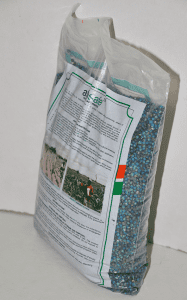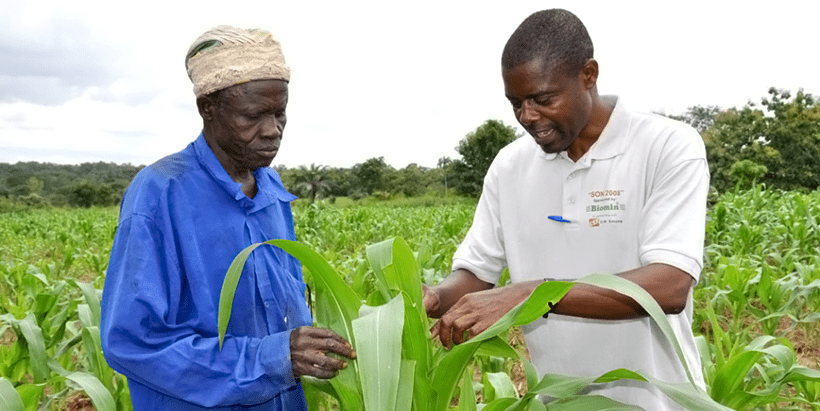Malawi
17 April 2020

The long wait for registration of Aflasafe products in Malawi has finally ended as the Pesticides Control Board (PCB) has now given the approval. Earlier, the technology was given the green light by the Agricultural Technical Clearing Committee, a unit under the Department of Agricultural Research Services (DARS). This registration paves the way for the local manufacture and commercialization of this natural, safe, and effective technology that reduces aflatoxin contamination in foods and feeds by over 80%.
Aflatoxin is associated with several health problems in humans and livestock. High concentrations of aflatoxin in food also have a negative impact on trade and incomes of smallholder farmers. In Malawi, aflatoxin contamination is widespread, especially in groundnut and maize, which are main staples. This naturally occurring poison compromises public health, causes liver cancer, and is associated with child stunting and weakened immunity resulting in more illness. Livestock fed with contaminated feed also suffer reduced growth and productivity. Economically, Malawi’s lucrative groundnut export market has been compromised by high levels of aflatoxin in crops.
“This registration and future local manufacture, the technology will be available for adoption by large groups of farmers in the country,” said Joseph Atehnkeng, Aflasafe lead scientist in IITA-Malawi. CGIAR-IITA, DARS, and the United States Department of Agriculture – Agricultural Research Service (USDA-ARS), developed two Aflasafe products with support from USAID-Malawi. Each product contains atoxigenic strains of the fungus Aspergillus flavus as active ingredient, which competitively displaces aflatoxin producers.
The two registered products—Aflasafe MWMZ01 (regional) and Aflasafe MW02 (country-specific) underwent extensive testing in farmers’ fields for three years, mainly in the maize and groundnut-growing areas in Southern Central and Northern Malawi in (11 Districts and 22 Expansion Planning Areas (EPAs). These trials demonstrated that Aflasafe successfully and safely reduced aflatoxin levels in maize and groundnut by more than 80%, for both groundnut and maize, compared to untreated fields.
 Joseph Atehnkeng explaining to a farmer how Aflasafe works on maize.
Joseph Atehnkeng explaining to a farmer how Aflasafe works on maize.
The good strains contained in Aflasafe are native to the Malawi environment and, after field application, become dominant in the environment, thereby out-competing the bad strains from colonizing the crop. Each product is composed of four native-to-Malawi, non-poisonous types of the fungus Aspergillus flavus. Aflasafe controls the aflatoxins by outnumbering toxigenic strains . The products are applied 2 to 3 weeks before flowering.
Ranajit Bandyopadhyay, Principal Scientist (Plant Pathology) and Leader of the Africa-wide Aflasafe Initiative at IITA, said, “With this, 14 Aflasafe products have been registered for scale-up in Africa: one product each in Senegal/The Gambia, Burkina Faso, Nigeria, and Kenya; and two products each in Ghana, Tanzania, Mozambique, Zambia, and Malawi.”
The next steps are to finalize a commercialization strategy, currently being reviewed by GIZ, and involve the private sector in the production and distribution of the products. After a competitive selection process, IITA will license the products to a private sector manufacturer and distributor to make the products available for farmers’ use. IITA will also provide technical assistance to aid in the start-up manufacturing process for Aflasafe products. The Aflatoxin Laboratory at the Chitedze Research Station will continue testing future groundnut and maize crops to assist the key players in bringing Aflasafe to market in Malawi.
With all of this in place, Malawi will be ready to begin producing maize and groundnut crops that will both keep its people healthy and open up new and lucrative markets for Malawi’s producers.
This milestone was achieved with the support of the Aflasafe team, especially Lawrence Kaptoge, for helping set up the Aflatoxin Research and Training Laboratory; Alejandro Ortega-Beltran, for reviewing the application dossier; and Arega Alene and David Chikoye for their administrative support.